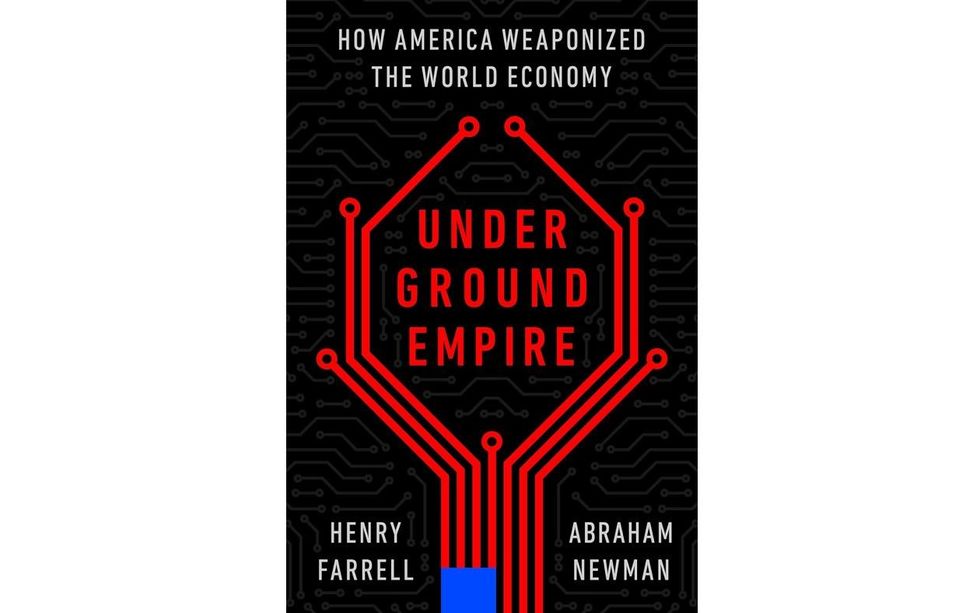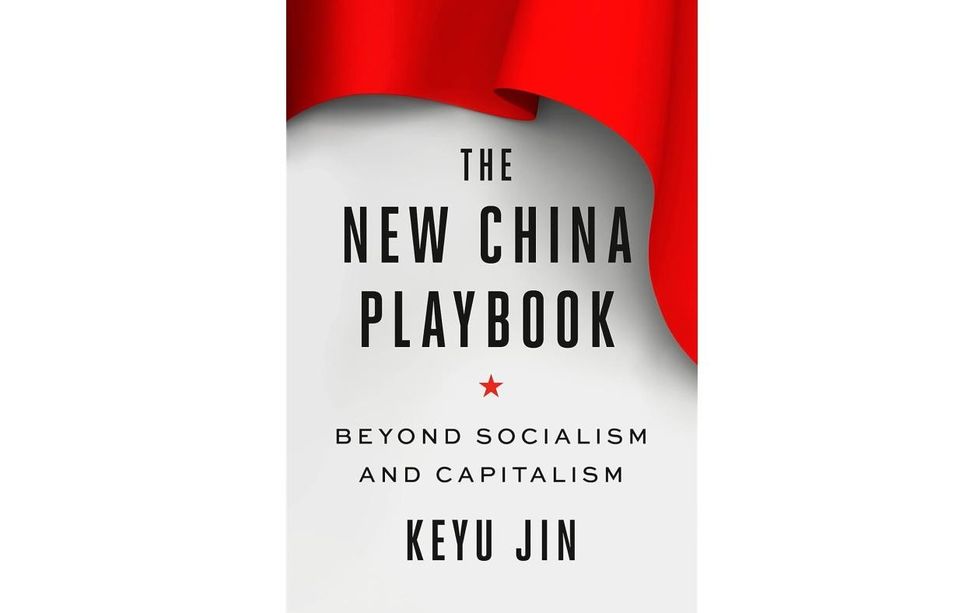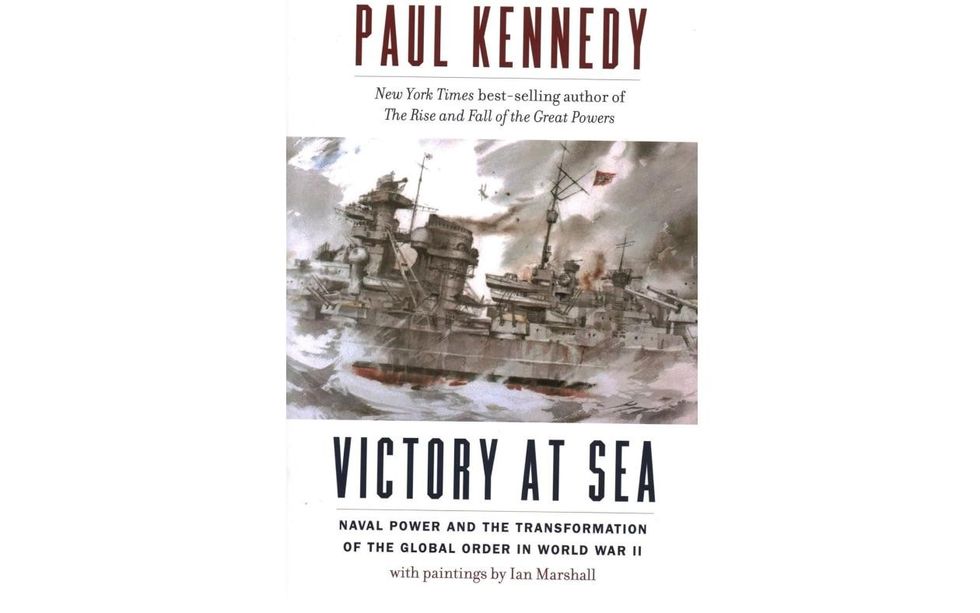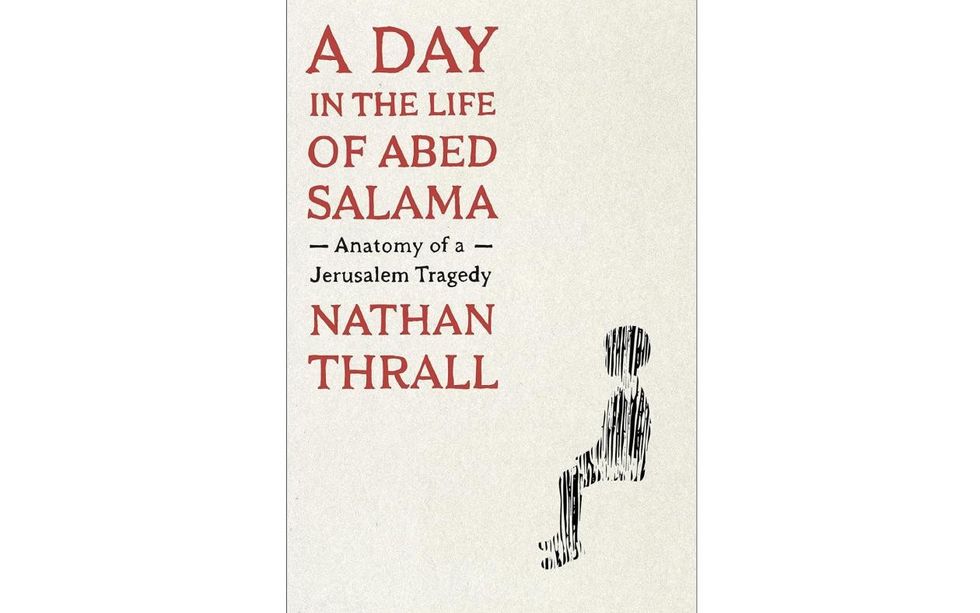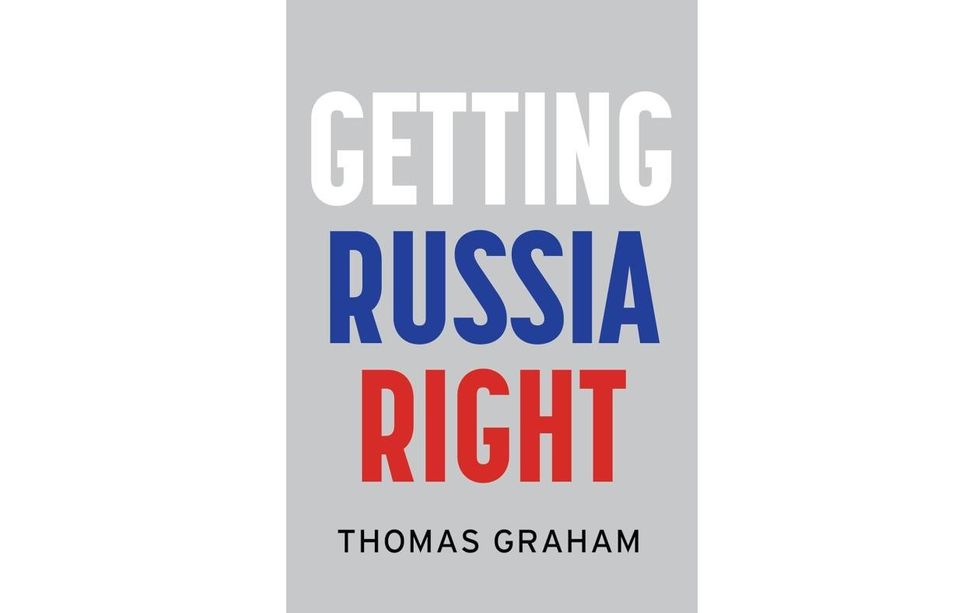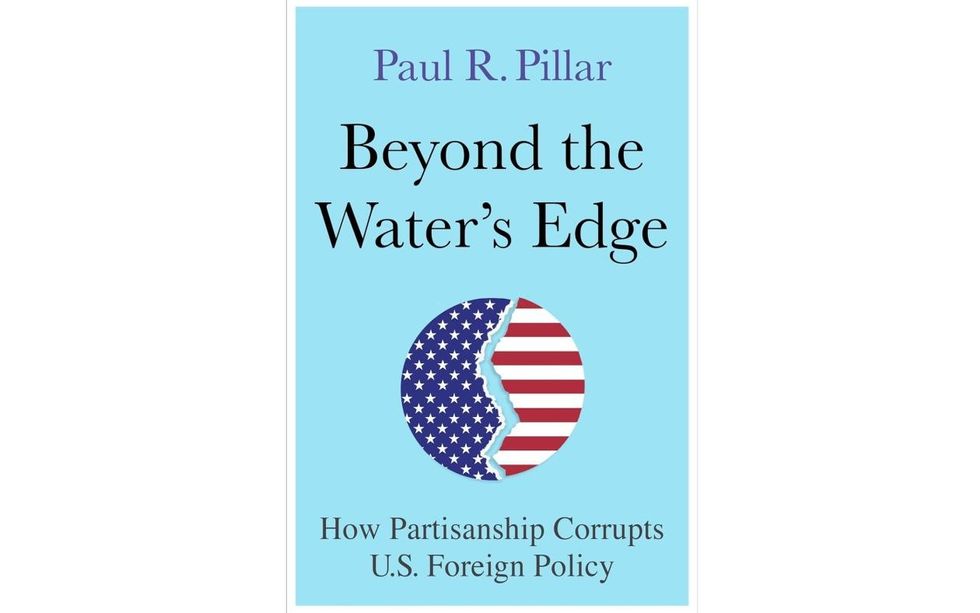Are you looking for the perfect foreign policy book to start the New Year right? We spent the last few weeks asking our favorite thinkers what new titles they loved this year. Here are the seven books that stood out in 2023.
Underground Empire: How America Weaponized the World Economy
By Henry Farrell and Abraham Newman
“Underground Empire” tells the story of how America used the unipolar moment to create a vice grip on the international economy, making it impossible for most countries to do business with each other (or even exchange messages) without using U.S. payment systems or IT infrastructure. The world order, once defined by multiple dueling blocs, thus became synonymous with U.S. power.
But empire isn’t free. As Farrell and Newman note, Washington’s constant use of sanctions and spying tools risks alienating other states and potentially bringing down the international system as we know it. Their book is a frightening reminder of the potential costs of overreach and a must-read for anyone interested in grand strategy and the future of global commerce. Ambitious readers may want to pair it with Chris Miller’s “Chip War,” a 2022 bestseller about America’s quest to remain the kingpin of the world microchip industry.
Grand Delusion: The Rise and Fall of American Ambition in the Middle East
By Steven Simon
When observing the parlous state of the Middle East today, it’s hard to avoid a fundamental question: How could well-meaning American policymakers have gotten the region so wrong? In “Grand Delusion,” Simon argues that most of our missteps boil down to a mismatch between pie-in-the-sky ends and limited means, made worse by a conviction that “facts don’t matter, only intentions.” The biting and well-researched book is made all the more powerful by Simon’s long background of government service, including top-level roles in both the Clinton and Obama administrations, where he argued in favor of many policies that he now badly regrets.
Simon brings a palpable sense of anger at four decades of American overreach in the Middle East, dedicating a chapter to each of the last eight presidents, all of whom found their own unique ways to leave the region worse than it was when they took office. His book is a must-read for those who want to understand where U.S. policy went wrong — and how to do things better next time. (Simon, we should note, is a senior research analyst at the Quincy Institute, which publishes RS.)
The New China Playbook: Beyond Socialism and Capitalism
By Keyu Jin
These days, most English-language books about China begin from a place of deep skepticism. Government statistics are taken as carefully crafted fictions, official statements as likely lies. What else would one expect as a new cold war dawns?
“The New China Playbook” is different. Written by a London-based economist whose father is a prominent Chinese Communist Party official, the book offers a rigorous yet sympathetic view of Beijing’s rise. Jin’s work provides crucial insights into the complex and sometimes surprising balance that the Chinese economy has struck between different systems. By demystifying China’s economy, she urges us to consider a future of cooperation instead of conflict.
Some have argued that Jin glosses over the darker aspects of Beijing’s government policies. Readers can decide for themselves. But one thing is certain: Her book offers a thoughtful point of view on China that you won’t find anywhere else.
Victory at Sea: Naval Power and the Transformation of the Global Order in World War II
By Paul Kennedy
Could any list of foreign policy must-reads be complete without a book about WWII? We certainly didn’t think so. Enter “Victory at Sea,” a wide-ranging yet page-turning look at the naval activities that defined last century’s greatest war from an eminent military historian. Kennedy’s book, which features new paintings from marine artist Ian Marshall, narrates the fall of old great powers and the rise of new ones, first and foremost led by the United States.
Readers with a limited background in naval history shouldn’t fear this book, which is less about the details of each individual battle than the broader trends in geopolitics playing out at the time. Some reviewers have noted minor factual errors emanating from some less-than-ideal sourcing, but all in all, “Victory at Sea” is a helpful and provocative overview of a vital moment in military history. (This one was technically published in 2022, but the paperback edition doesn’t come out until next year, so we’ll call it even.)
A Day in the Life of Abed Salama: Anatomy of a Jerusalem Tragedy
By Nathan Thrall
The book starts with a living nightmare: A truck slams into a Jerusalem school bus carrying kindergartners, leaving one teacher and six children dead. Many survivors left the resulting fire with life-changing burns.
“A Day in the Life of Abed Salama” tells the story of the father of one of those children. Thrall narrates Salama’s desperate efforts to find his son, an emotional struggle made all the more difficult by the fact that the life-long resident of Jerusalem could not legally enter Jewish-controlled parts of the city.
The book expands on a 2021 essay in the New York Review of Books in which Thrall interlaces stories about the accident with a crash course in Jerusalem’s history. The extra space allows Thrall to dive deeper into Salama’s life, in which everything from his marriage to his child’s education is shaped by the brutal realities of life under occupation. As war rages in Gaza, this book offers a moving testimony of the more mundane forms of violence that define life between the Jordan River and the Mediterranean Sea.
Getting Russia Right
By Thomas Graham
Some books argue that the U.S. and Russia are natural enemies, doomed to fight until one side wins. Others blame one country or the other for a laundry list of sins that made cooperation impossible after the heady days of the 1990s. “Getting Russia Right,” to its great credit, does neither.
Graham combines a realist sensibility with the hard pragmatism of a long-time policymaker, drawing on a wealth of experience as in both government and academia. In his view, structural factors — chief among them the difference in how each side views Russia’s rightful place in the world — combined with a series of impertinent decisions by both sides to leave bilateral relations in their current sorry state.
By insisting on the agency of both Washington and Moscow, “Getting Russia Right” argues that better-informed decisions could actually lead to better outcomes. And Graham, in his typical style, lays out a clear and specific set of recommendations to encourage such a shift. His relatively short book is required reading for those who feel like one Cold War was more than enough.
Beyond the Water’s Edge: How Partisanship Corrupts U.S. Foreign Policy
By Paul Pillar
There’s an old truism that, while American politicians play partisan games over domestic problems, such petty squabbles give way to unity “at the water’s edge.” Pillar’s book destroys this fiction, illuminating how party interests have all too often taken precedence over sober-minded analysis by patriotic bureaucrats. This phenomenon, in his telling, leads to unnecessarily long wars and corrodes our own democracy at home.
While “Beyond the Water’s Edge” largely focuses on the past three decades, Pillar sometimes reaches further back into U.S. history to demonstrate the ways in which officials have overcome this tendency. But Pillar, who is a former intelligence official and current non-resident fellow at the Quincy Institute, is far from pollyannaish: The book recommends myriad policies to reduce the influence of partisanship on foreign policy but deems their implementation highly unlikely. Little wonder that Francis Fukuyama described the slim treatise as an “ominous warning.”

